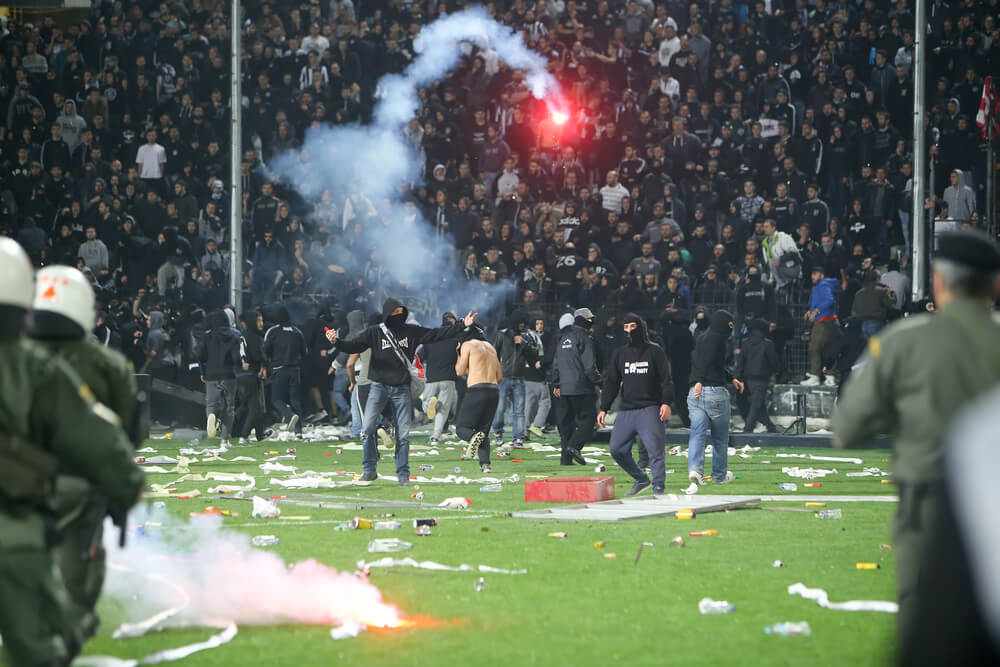Why is there so much violence in football? Specifically among the association. Very often we see terrible news about events among rival fans. The last violent event was during the Final of the Copa Libertadores, in which the Argentine teams River Plate and Boca Juniors faced each other.
Due to the violence between several groups of fans, the final, instead of being played in Argentina, had to be played in Spain, many people show their astonishment and amazement at this type of collective behavior and does not understand the reasons.
- However.
- Psychology has been studying the social behavior of groups for many years.
- In this article we will try to clarify what is behind these violent and aggressive behaviors.
There is no single theory that brings together all the reasons behind these facts, but there are theories that address them. First, to explain football violence, we will address the process of de-individualization. This process does not explain the violence itself, but it does. the behavior of the group.
Imagine watching a football match and a player from the opposing team is close to us, if we intend to insult him, but we are surrounded by fans of the opposing team, we probably won’t. same team?
If the love around us is from the same team and your intention is also to insult, we will end up verbally attacking the player of the opposing team What is the difference between the two situations?Anonymity and responsibility.
“Violence is the last resort of the incompetent. ” Isaac Asimov
As Moral, Gómez and Canto (2004) point out, “In these situations, anonymity, grouping and reducing individual self-awareness would lead people to behave uninhibited, impulsively and anti-rmatively. “
When we hide in anonymity, we become more prone to violent actions, if no one knows we are the ones we insult, we will do so more often than when we are in the spotlight. decreases, i. e. our responsibility is transferred to the group. We stop being ourselves and become the group, so we can think “it’s not just me who insults, it’s the group. “
Compliance is another process that could explain football violence. This process involves changing the response of an individual who approaches what most people express, that is, changing our behavior to fit into the group.
As Paéz y Campos (2003) points out, “conformism is the change of behavior or belief due to the pressure of the group, which changes the pre-conditions of the subject according to the standard established by the collective in question”.
In groups, we can find several types of standards, such as the descriptive standard, which refers to how you act within the group, and the prescriptive standard, which refers to how someone is expected.
Compliance is a type of normative influence, as the individual is able to change his personal behavior to suit that of the group, and is even able to perform behaviors totally opposed to those that would be practiced individually.
“The victory achieved by violence is equivalent to defeat, because it is momentary. “Gandhi
Therefore, if our comparison group behaves violently, it would not be strange to adopt this behavior. This conformism develops as the group’s levels of control over its members and the interdependence between them increase. It also develops when there is some uncertainty or ambiguity, that is, “when I do not know what to do, I adopt the behavior of the group”.
Compliance increases when there are similarities between the group and the individual. If someone feels very identified with a football team and the violent ideology of a group of fans, they will be more willing to engage in violent behavior.
Football violence is a reality that we live very often, excessive expectations of external stimuli lead us to place our happiness in events like a football match.
If we do not receive adequate education and are used to resolving disputes on the path of violence, it will not be difficult to act aggressively in the face of disagreement, so proper and respectful education with others is an important basis for avoiding such disagreements. Behavior.
A rich inner world and an open and thoughtful mind will also give us strength and reduce our need to be part of a group. Behind this need, there is often a lack of self-esteem that one tries to overcome by belonging to a group.
The sense of belonging gives us a sense of emotional fullness, so we seek out the personal realization that we do not develop inside.
Self-know-how will be fundamental to avoid falling into groups where violence is one of the maxims, after all, the lower our self-esteem, the stronger the group, the more we have to belong. So if we start respecting each other and each other, these kinds of events will be a thing of the past.

